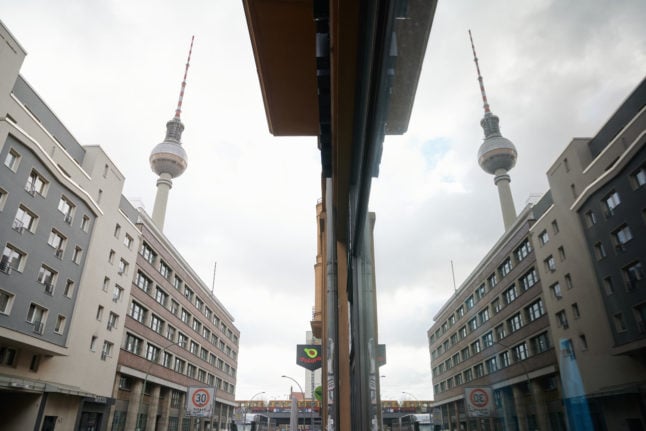The sudden announcement was made by judges at Germany’s Constitutional Court in Karlsruhe on Wednesday, who said they expect to publish a written decision by 9:30am on Thursday.
With its unique statewide rent cap, the first of its kind across Germany, the Berlin Senate brought it in to slow down the increase in rental costs in the capital.
Since February 23th 2020, rents for 1.5 million apartments have been frozen at the June 2019 level. From 2022, they can rise by no more than 1.3 percent a year under the law.
READ ALSO: ‘We’re setting a clear stop sign’: Berlin passes five-year rental freeze law
If an apartment is rented out, the landlord must adhere to new caps set by the state and the last rent charged. On November 23rd 2020, the second part of the act went into effect: rents that were more than 20 percent above the upper limits became prohibited by law.
The regulation is limited to five years. Newly built apartments (Neubauten) that were ready for occupancy from January 1st 2014 are among those exempted.
Rental prices in many of Berlin’s trendiest neighbourhoods have more than doubled since 2009 – although they were down by 6.5 percent in 2020.
READ ALSO: Here’s where rent prices are falling (and going up) in Germany
Why did the law go to court?
In May 2020, the liberal Free Democrats (FDP) and centre-right CDU/CSU parliamentary groups submitted a petition for a review to constitutional judges in Karlsruhe.
The total of 284 members of parliament believe that the city-state of Berlin has exceeded its powers – and that rental law is a matter for federal legislature.
The federal judges are now set to rule on the petition, as well as on two submissions by the Berlin Regional Court and a local court in the district of Mitte.
READ ALSO: Berlin’s district court rules in favour of rental price cap
The Berlin Constitutional Court had suspended its own proceedings in October to await the Karlsruhe decision.
Germany’s real estate industry has also criticised Berlin’s law and fears negative effects, among other things, on housing construction and on investments such as modernization.
Germany’s Tenants’ Association (Mietverein), on the other hand, said that the legislation represented an historic opportunity to secure affordable rents for the majority of the population.



 Please whitelist us to continue reading.
Please whitelist us to continue reading.
Member comments